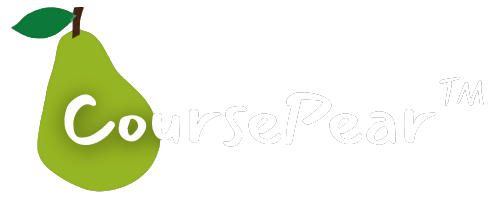🍐 我们总结了美国代写中——English代写的经典案例,如果你有任何论文代写的需要,可以随时联络我们。CoursePear™ From @2009。(Rochester代写)
Interacting with Sources
For this assignment you will be asked to work with two sources of your choice that present two different perspectives on a given topic (Minsky and McKibben are examples of two writers who would work well for this assignment). For each source, write a thorough synopsis of the author’s main argument and the evidence they use to support it. Then perform an analysis of each source. Discuss what you perceive to be the main strengths and weaknesses of the author’s argument. Does it rest on questionable premises? Does their evidence fail to substantiate their claims as well as they think it does?
After you have done this for both of your sources, conclude by weighing in. Is one much closer to the truth than the other? Or is there a third way that avoids the pitfalls of both? Make an argument in favor of what you think about the issue and how your perspective differs from those of your sources.
Advice for Sources:
-The author of the source should be the person making the argument. If you’re getting an argument second hand so that you’re summarizing somebody’s summary or somebody’s distillation of or reportage on a viewpoint, that often doesn’t work for this assignment. Something like procon.org which is a compilation of arguments made in favor of or against a given topic isn’t a good source. Textbooks summarizing different perspectives on a topic are also summaries or distillations that don’t lend themselves to the kind of summary or analysis required for this assignment. An interview might be the exception to the rule, but even with an interview there might be a few caveats.
-Make sure the sources you’re engaging with are argumentative and complex. They should provide a detailed rationale for why their position is right and the rationale should be extensive enough to allow for detailed critique.
-Make sure you can take their position seriously enough to do a disciplined critique of their argument without slipping into counter arguments or derisive comments about the author or their position.
-Please don’t hesitate to ask if you have questions about a source.
Writing Effective Summaries:
-Read carefully. I often have to say, “that’s not quite what they’re saying.” Having an accurate and holistic conception of the argument will likely require reading it more than once.
-The most important question is, can a person who hasn’t read the source glean a fairly accurate and comprehensive sense of what and how the author argues from the summary you provide? If you have a willing friend, it’s not a bad idea to give the summary to them and see if they can reconstruct the author’s argument in their own words. How accurate is the impression they came away with? They can also tell you if any parts of the summary are confusing or if there seems to be crucial information missing.
-Summarizing, by its nature, requires selectivity. It’s impossible for the summary to include everything in the source, but it should include everything essential to the author’s argument. Ultimately, you’ll need to make some judgment calls, so try to use your best judgment.
-It’s also important to represent their argument as fairly, and objectively, as possible. If you gave the author your summary of their argument for them to read, you would want them to approve of what is included in the summary and how it is presented.
-An effective balance of quoting and paraphrasing will be essential to conveying critical information about the style and content of the author’s argument as economically as possible.
-After writing the critiques, it’s a good idea to revisit your summaries. The summaries should provide a context for understanding everything discussed in the critiques.
Writing Strong Critiques:
-Discuss your source’s argument, not the issue! This is a good thing to be particularly vigilant about because it’s easy to slip from one to the other without entirely realizing it. For most of the points you make in your critique you should be able to point to specific sentences that illustrate the point you’re making.
-Does the author represent their opposition fairly? Keep an eye out for strawmen, bulverism, and low-hanging-fruit.
-Consider checking the author’s sources. Are their claims well-sourced? If they cite a study, does the study show what they’re claiming it shows? Consider how recent the study is, how large its sample size was, and whether or not it is representative of the broader body of research on the topic.
-Are the author’s facts, statistics, and quotations adequately (and accurately) contextualized? -Most importantly, does the author’s reasoning sufficiently support the main claim?
-Be analytical! Avoid making claims about the source or the argument that are overly subjective, arbitrary, or dismissive.
-Be honest about what your source is and what it is trying to do. Don’t accuse the author of neglecting questions that are clearly outside the scope of its argument or for not doing things that it wouldn’t make any sense for them to do given the genre of the piece. If the author is making a fairly complex argument and/or is capable of sympathizing with both perspectives on the topic, don’t automatically interpret any disclaimers of points of agreement with the other side as weakening their argument.
-Interpret statements sensibly. For example, no Amelia Bedelia-isms.
-Read carefully. I often have to say, “that’s not quite what he’s saying.” Yes, I know I already said this, but it applies to the summary and the critique.
-There is no mandatory number of discrete points that your critique is required to make. Ultimately, you should aim for enough material to fill a few paragraphs or one long paragraph (without fluff). Quality is more important than quantity. Focusing on making quality critiques rather than striving for a specific number of critiques (or a certain amount of page space) is a good way to avoid grasping at straws.
Does this seem like a lot to take in?
Keep in mind that as long as you hand it in on time your draft of this paper will not affect your grade in any way. And we’ll have lots of time during the group feedback session to discuss your draft and talk about how it could be more effective, and after getting feedback there will be plenty of time to revise in accordance with that feedback. Historically, I’ve always been pretty reluctant to tell anybody, “this won’t work!” when looking at their draft. I’m pretty open-minded and I’m interested in helping you find ways to make what you want to do fit within the parameters of the assignment.
Stumped?
Feel free to come talk to me if you’re struggling to come up with a topic or if you have more general questions about the assignment. As a policy, I don’t like to look at or comment on drafts before the feedback session, but I’m happy to discuss topics or approaches more generally with you as much as you like.
Grading Criteria:
-Does the majority of the paper consist of summarizing and critiquing two sources that hold substantially different perspectives on a given topic?
-Are personal opinions on the topic and attitudes toward the sources withheld until the end of the paper?
-Are the summaries clear, coherent, fair, accurate, and comprehensive?
-Are the critiques honest, fair, analytical, nuanced, and insightful?
-Is the paper organized in such a way that it is clear when the source is being summarized and when it is being critiqued?
-Are sentence-level choices effective?
CoursePear™是一家服务全球留学生的专业代写。
—-我们专注提供高质靠谱的美国、加拿大、英国、澳洲、新西兰代写服务。
—-我们专注提供Essay、统计、金融、CS、经济、数学等覆盖100+专业的作业代写服务。

CoursePear™提供各类学术服务,Essay代写,Assignment代写,Exam / Quiz助攻,Dissertation / Thesis代写,Problem Set代做等。
